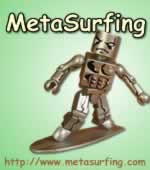They are the universal pearls of wisdom that explain some of the more puzzling things about the human body and help people live healthy lives: don't read in dim light, drink eight glasses of water a day and don't use mobile phones in hospitals.
The problem is: there is no evidence to suggest that these gems of advice are actually true. In a study out today researchers have scoured through leading databases of medical research to test whether any of the most commonly held beliefs among doctors and patients bear any links to reality.
The two doctors behind the research wanted to remind their colleagues that anyone could get things wrong and suggested that doctors should think twice about commonly held ideas that might not be based on evidence.
"We got fired up about this because we knew that physicians accepted these beliefs and were passing this information along to their patients. And these beliefs are frequently cited in the popular media. We didn't set out to become myth busters," said Aaron Carroll of the Regenstrief Institute in Indianapolis.
Everyone must drink at least eight glasses of water a day
This advice is thought to have originated in 1945 from the Nutrition Council in the US, which suggested people needed to consume 2.5 litres of water a day. But Vreeman said the water contained in food, particularly fruit and vegetables, as well as in milk, juice, coffee and soft drinks, also counts towards the total.
We only use 10% of our brains
"The myth arose as early as 1907, propagated by multiple sources advocating the power of self-improvement and tapping into each person's unrealised latent abilities," say Vreeman and Carroll. "The many functions of the brain are highly localised, with different tasks allocated to different anatomical regions. Detailed probing of the brain has failed to identify the 'non-functioning' 90%."
Hair and fingernails continue to grow after death
According to Vreeman, the myth persists because of an optical illusion. "As the body's skin is drying out, soft tissue, especially skin, is retracting. The nails appear much more prominent as the skin dries out." The same is true, but less obvious, with hair. "As the skin is shrinking back, the hair looks more prominent or sticks up a bit." The actual growth of hair and nails requires a complex set of precisely regulated hormones, which do not continue after death.
Reading in dim light ruins your eyesight
Generations of parents have warned their children not to read in poor light, telling them that it could somehow damage their sight. Though dim lighting can cause stress in the eye, the important thing to remember, say the researchers, is that the effects are not permanent. "Suboptimal lighting can create a sensation of having difficulty in focusing. It also decreases the rate of blinking and leads to discomfort from drying. The important counterpoint is that these effects do not persist."
Monday, December 24, 2007
We Use 10% of Our Brain? Not really! This and Other Myths
Subscribe to:
Post Comments (Atom)

No comments:
Post a Comment